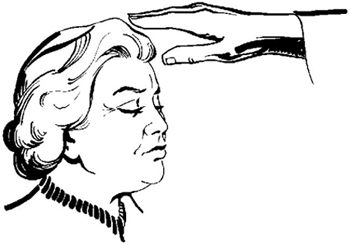
What is Anointing of the Sick?
In the beginning
The early Christian Church prayed for its sick members. Oil, brought by the faithful, was blessed by the bishop. Anyone could use or apply the oil in times of sickness.
Time Brings Changes
Some centuries later, a rite for the anointing of the sick appeared. This rite assumed that the community was gathered and the sick person was generally able to be restored to health. Meanwhile, people began putting off the Sacrament of Penance until their deathbed because it could be received only once. Therefore they couldn't receive the Sacrament of the Sick until they had confessed and been reconciled to the church. Since both sacraments would therefore often occur at the time of death, the anointing of the sick unfortunately became associated with dying. Church teachers who knew only of this practice began to explain the anointing as a preparation for death (rather than a prayer for the sick.)

The Result
Even though the official teaching of the Church urged people not to wait until the time of death to receive the anointing, in practice most people did wait. Some families even waited until the dying person was unconscious before calling a priest. What had been a sacrament for the sick became incorrectly known as the "Last Rites" and many of us grew up with images of the priest anointing the dying person, even anointing someone who had died.
Today the Proper Practice
Anointing of the sick is for the seriously sick. A person need not be in danger of dying. The beginning of serious illness is the best time to request the sacrament. It may be repeated during a long illness or as the elderly struggle with the infirmities of age. There is no absolute nor emergency requirement for this sacrament.
The purpose of the sacrament is to unite the one who is sick with the suffering, death and resurrection of Christ so the sick may know the healing presence and love of the Lord, be strengthened in faith and experience the support of the Church. The sacrament is for the living. The Church does not permit the anointing to be given to anyone who has already died. There are other prayers and rites available in the official prayers of the Church for those who are sick or near death or who have already died.
Who may celebrate these prayers?
As in the past, the priest is the proper minister for the Sacrament of the Anointing of the Sick. The priest is to be called when available in any serious moment and especially should the sick desire the Sacrament of Penance (Reconciliation). If a priest is not available please remember that the Anointing of the Sick is not required nor absolutely necessary for a peaceful death.
What then are the last rites?
Last Rites refers to reception of Holy Communion by a person near death. It is called Viaticum, food for the journey. It is a beautiful sacrament and can be repeated over several days as the person nears death. It may be administered by any Catholic pastoral minister or special minister of communion as well as by a priest.
